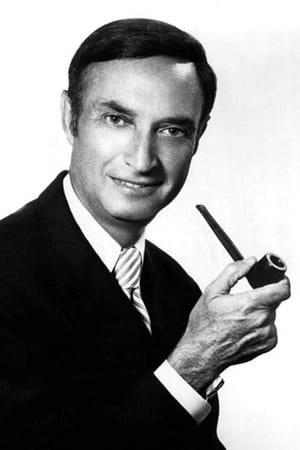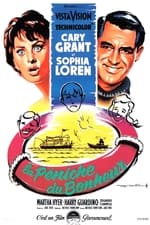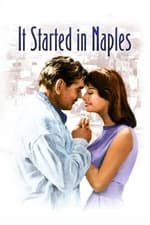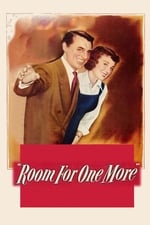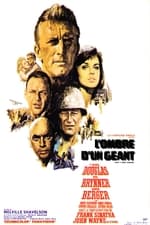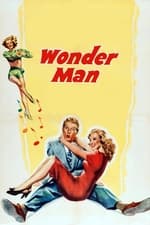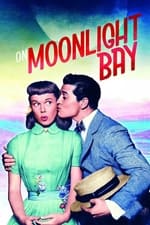Informations personnelles
Célèbre pour Écriture
Apparitions connues 43
Genre Homme
Date de naissance 1 avril 1917
Date de décès 8 août 2007 (90 ans)
Lieu de naissance New York City, New York, USA
Alias
- Mel Shavelson
Score de contenu
100
Superbe ! Cette fiche semble complète !
Connectez-vous afin de
signaler un problème.
Biographie
From Wikipedia, the free encyclopedia
Melville Shavelson (April 1, 1917 – August 8, 2007) was an American film director, producer, screenwriter, and author. He was President of the Writers Guild of America, West (WGAw) from 1969 to 1971, 1979 to 1981, and 1985 to 1987. He came to Hollywood in 1938 as one of comedian Bob Hope's joke writers, a job he held for the next five years. He is responsible for the screenplays of such Hope films as The Princess and the Pirate (1944), Where There's Life (1947), The Great Lover (1949), and Sorrowful Jones (1949), which also starred Lucille Ball.
Shavelson was nominated twice for Academy Awards for Best Original Screenplay -- first for 1955's The Seven Little Foys, starring Hope in a rare dramatic role, and then for 1958's Houseboat. He shared both nominations with Jack Rose. He also directed both films.
Other films he wrote and directed include Beau James (1957), The Five Pennies (1959) for which he won a Screen Writers Guild Award, It Started in Naples (1960), On the Double (1961), The Pigeon That Took Rome (1962), A New Kind of Love (1963), Cast a Giant Shadow (1966), and Yours, Mine and Ours (1968), which starred Henry Fonda and again with Lucille Ball. The film, a comedy about a widow (Lucille Ball) and a widower (Henry Fonda) raising 18 children together. When Ms. Ball later asked Mr. Shavelson how he enjoyed directing her, The Associated Press reported, he replied, “Lucy, this is the first time I ever made a film with 19 children.” Ms. Ball was not amused. In addition to his film work, Shavelson created two Emmy award-winning television series and wrote for a dozen Academy Award shows.
He also wrote,produced and co-directed the six-hour ABC screenplay to the 1979 television miniseries Ike about Dwight D. Eisenhower, based on the World War II exploits of Gen. Dwight Eisenhower. He also wrote, miniseries Ike, The War Years.
Shavelson's autobiography, published by BearManor Media in April 2007, is entitled How to Succeed in Hollywood Without Really Trying, P.S. - You Can't! Shavelson wrote several other books, including, with Mr. Hope, “Don’t Shoot, It’s Only Me: Bob Hope’s Comedy History of the United States” (Putnam, 1990), and How to Make a Jewish Movie (1971), a memoir of his experiences while producing and directing Cast a Giant Shadow, and the Hollywood-themed novel Lualda (1973).
Shavelson was a noted instructor at USC's Master of Professional Writing Program from 1998-2006. He taught screenwriting, who often cracked to his students, "I'm a writer by choice, a producer by necessity and a director in self-defense."
Shavelson's first wife, Lucille, died in 2000. He was married to his second wife, Ruth Florea, from 2001 until his death in 2007. He had two children, Lynne Joiner and Richard Shavelson.
Description above from the Wikipedia article Melville Shavelson, licensed under CC-BY-SA, full list of contributors on Wikipedia.
From Wikipedia, the free encyclopedia
Melville Shavelson (April 1, 1917 – August 8, 2007) was an American film director, producer, screenwriter, and author. He was President of the Writers Guild of America, West (WGAw) from 1969 to 1971, 1979 to 1981, and 1985 to 1987. He came to Hollywood in 1938 as one of comedian Bob Hope's joke writers, a job he held for the next five years. He is responsible for the screenplays of such Hope films as The Princess and the Pirate (1944), Where There's Life (1947), The Great Lover (1949), and Sorrowful Jones (1949), which also starred Lucille Ball.
Shavelson was nominated twice for Academy Awards for Best Original Screenplay -- first for 1955's The Seven Little Foys, starring Hope in a rare dramatic role, and then for 1958's Houseboat. He shared both nominations with Jack Rose. He also directed both films.
Other films he wrote and directed include Beau James (1957), The Five Pennies (1959) for which he won a Screen Writers Guild Award, It Started in Naples (1960), On the Double (1961), The Pigeon That Took Rome (1962), A New Kind of Love (1963), Cast a Giant Shadow (1966), and Yours, Mine and Ours (1968), which starred Henry Fonda and again with Lucille Ball. The film, a comedy about a widow (Lucille Ball) and a widower (Henry Fonda) raising 18 children together. When Ms. Ball later asked Mr. Shavelson how he enjoyed directing her, The Associated Press reported, he replied, “Lucy, this is the first time I ever made a film with 19 children.” Ms. Ball was not amused. In addition to his film work, Shavelson created two Emmy award-winning television series and wrote for a dozen Academy Award shows.
He also wrote,produced and co-directed the six-hour ABC screenplay to the 1979 television miniseries Ike about Dwight D. Eisenhower, based on the World War II exploits of Gen. Dwight Eisenhower. He also wrote, miniseries Ike, The War Years.
Shavelson's autobiography, published by BearManor Media in April 2007, is entitled How to Succeed in Hollywood Without Really Trying, P.S. - You Can't! Shavelson wrote several other books, including, with Mr. Hope, “Don’t Shoot, It’s Only Me: Bob Hope’s Comedy History of the United States” (Putnam, 1990), and How to Make a Jewish Movie (1971), a memoir of his experiences while producing and directing Cast a Giant Shadow, and the Hollywood-themed novel Lualda (1973).
Shavelson was a noted instructor at USC's Master of Professional Writing Program from 1998-2006. He taught screenwriting, who often cracked to his students, "I'm a writer by choice, a producer by necessity and a director in self-defense."
Shavelson's first wife, Lucille, died in 2000. He was married to his second wife, Ruth Florea, from 2001 until his death in 2007. He had two children, Lynne Joiner and Richard Shavelson.
Description above from the Wikipedia article Melville Shavelson, licensed under CC-BY-SA, full list of contributors on Wikipedia.
Écriture
|
||||||||||||
|
||||||||||||
|
||||||||||||
|
||||||||||||
|
||||||||||||
|
||||||||||||
|
||||||||||||
|
||||||||||||
|
||||||||||||
|
||||||||||||
|
||||||||||||
|
||||||||||||
|
||||||||||||
|
||||||||||||
|
||||||||||||
|
||||||||||||
|
||||||||||||
|
||||||||||||
|
||||||||||||
|
||||||||||||
|
||||||||||||
|
||||||||||||
|
||||||||||||
|
||||||||||||
|
||||||||||||
|
Réalisation
|
||||||
|
||||||
|
||||||
|
||||||
|
||||||
|
||||||
|
||||||
|
||||||
|
||||||
|
||||||
|
||||||
|
||||||
|
||||||
|
||||||
|
||||||
|
||||||
|
||||||
|
||||||
|
Production
|
|||
|
|||
|
|||
|
|||
|
|||
|
Création
|
|||
|
|||
|
|||
|
Interprétation
|
|||
|
